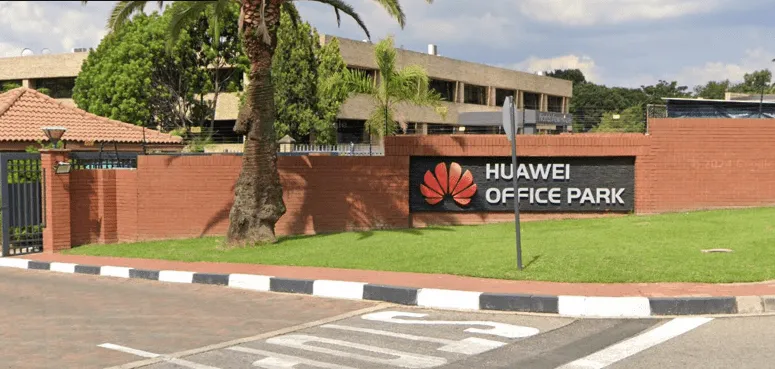
Remember when 90% of Huawei SA’s employees were foreign nationals?
In 2022, labor inspectors found that Huawei was not in compliance with South Africa’s Employment Equity laws.

Huawei Technologies South Africa, the local branch of the Chinese digital technology firm, now employs fewer foreign nationals across most levels, reflecting progress in adhering to South Africa’s Employment Equity (EE) policies.
As of 31 March 2024, Huawei South Africa employed 57% local people and 43% foreign nationals, a marked improvement from the 90% foreign nationals employed in 2022.
This was revealed by Minister of Employment and Labour, Nomakhosazana Meth, answering a question in the National Assembly posed by Thandiswa Marawu, a member of Parliament (MP) representing the African Transformation Movement.
Last Friday, Marawu asked Meth for an update regarding Huawei’s EE non-compliance, first flagged two years ago and eliciting uproar across South Africa.
Foreign nationals in top management: now vs then
“The progress made by Huawei South Africa as agreed in 2022 to replace staff members who are foreign nationals is as follows; in terms of EE Report 2023 as submitted by Huawei South Africa to the Department of Employment and Labour; foreign nationals occupy 60% of all positions in top management,” Meth said.
This is a far cry from the February 2022 numbers the department unearthed, when the company’s top management (five employees) were 100% foreign nationals.
However, there is a decline at the senior management level, with foreign nationals employed constituting 53% as of March 2024, up from 38% in February 2022.
Foreign nationals in lower levels
| 2022 | 2024 | |
| Senior Management | 38% (27 employees) | 53% |
| Professionally Qualified/Middle Management | 87% (378 employees) | 64% |
| Skilled Technical/Junior Management | 76% (138 employees) | 35% |
| Semi-skilled | 1 employee | None |
“The Department of Employment and Labour will continue to monitor the progress of employment of local people at management levels, as these are significant strategic decision-making positions that influence the transformation agenda in the country,” Meth concluded.
Home Affairs: Huawei did not get permission from us
After the bust by the labour department in 2022, a Huawei legal representative reportedly told government inspectors that they were granted permission by Home Affair to transgress EE rules.
“In investigating this matter, we worked with Home Affairs to determine whether they had granted Huawei a permit to employ more than 40% foreign nationals, as required by the Immigration Regulations.
“It was discovered that Huawei was granted a permit in accordance with the provisions of the Immigration Regulations that required them to employ 60% South Africans and 40% foreign nationals,” the labour department said.
EFF enters the fray
The Economic Freedom Fighters (EFF) also weighed in, accused Huawei South Africa of exacerbating tensions between South African citizens and their continental counterparts.
“Such irregular employment practices contribute to a volatile relationship between Africans. They must immediately resolve the situation, because it gives credence to armed thugs to execute xenophobia in our society.
“No foreign national must be fired from Huawei in order for them to comply with our Employment Equity policies. Rather, those employees must be spread out across the various plants and units of the company,” the EFF said.
Out-of-court settlement with Huawei
The labour department then filed court papers “due to non-compliance with EE policy”, seeking a fine of R1.5 million or 2% of the Huawei Technologies South Africa’s 2020 turnover.
In March 2022, Huawei South Africa and the department reached an out-of-court settlement, which included collaborating to offer information and communications technology courses to unemployed South Africans, “especially women and those from rural areas”.
